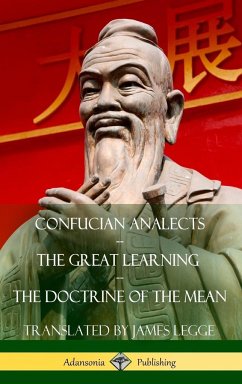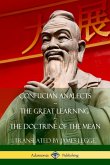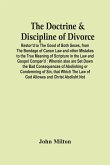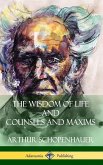This compilation contains three of the most revered and celebrated texts by the ancient Chinese philosopher Confucius. The Analects of Confucius were penned during the Warring States period of Chinese antiquity, which saw great social upheaval between the various realms of the Middle Kingdom. Divided into twenty principle chapters (called books) - the subjects range from wise behaviour in times of crisis to general instruction upon how to live a peaceful life characterised by a serene mood, humility to others, and quality work performed well. The Great Learning: One of the classic four books of ancient Confucianism consists of a short initial commentary attributed to Confucius himself, followed by a lengthier tract written by one of his disciples named Zengzi. Another classic book of Confucian thought, The Doctrine of the Mean, is a practical guide for those aspiring to sublime wisdom. It demonstrates how a balanced, harmonious manner of living is the most conducive to joy and satisfaction.
Hinweis: Dieser Artikel kann nur an eine deutsche Lieferadresse ausgeliefert werden.
Hinweis: Dieser Artikel kann nur an eine deutsche Lieferadresse ausgeliefert werden.








